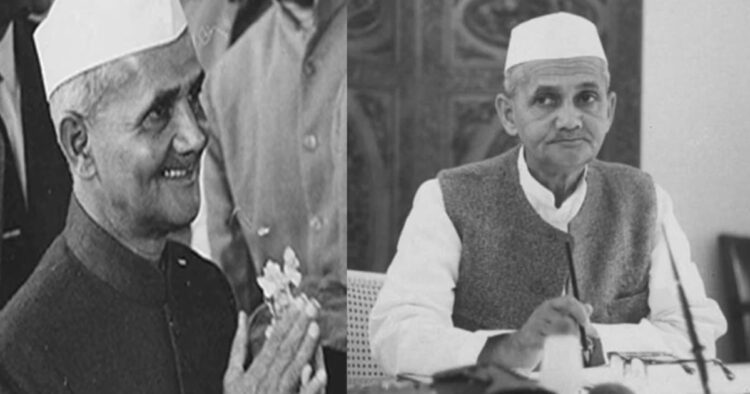On Saturday, the nation observes the 59th death anniversary of Lal Bahadur Shastri, Bharat’s second Prime Minister. A leader who embodied humility, integrity, and selfless service, Shastri’s contributions to Bharat’s progress and his visionary leadership during critical moments continue to resonate with generations. Born on October 2, 1904, in Mughalsarai (now Deen Dayal Upadhyaya Nagar) in Uttar Pradesh, Lal Bahadur Shastri’s early life was marked by hardship.
His father, a schoolteacher, passed away when Shastri was just 18 months old, leaving his family in dire straits. Raised by his mother and extended family, Shastri’s formative years were spent overcoming poverty. Nicknamed “Nanhe” (little one), he often walked miles barefoot to attend school, even in the scorching heat of the Bharat’s summer. This resilience and simplicity shaped his character, preparing him for the challenges that lay ahead. Shastri’s political journey began at the age of 16 when he joined Mahatma Gandhi’s Non-Cooperation Movement against British colonial rule. Inspired by Gandhi’s principles of non-violence and self-reliance, Shastri fully dedicated himself to Bharat’s independence struggle.
His participation in movements like the Salt Satyagraha and the Quit India Movement led to multiple imprisonments, yet each term in jail strengthened his resolve. Shastri’s calm demeanor, coupled with an unwavering commitment to justice, earned him respect among his peers and the masses. After independence in 1947, Shastri played key roles in shaping Bharat’s governance. As the Union Railway Minister, he displayed rare moral accountability by resigning after a major train accident, demonstrating his dedication to public service and responsibility.
Later, as Home Minister, he reinforced Bharat’s internal security and emphasised communal harmony during turbulent times. His administrative acumen and dedication earned him the trust of Jawaharlal Nehru, Bharat’s first Prime Minister, and the Indian National Congress. Following Nehru’s death in May 1964, Shastri was chosen as his successor. Despite being seen as a leader of quiet demeanor, Shastri’s tenure as Prime Minister was marked by decisive leadership and transformative policies.

















Comments